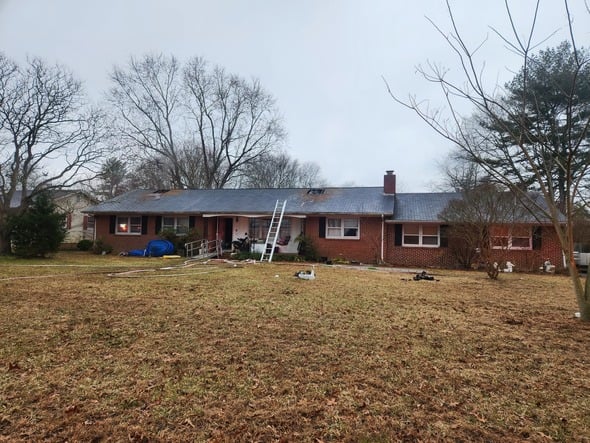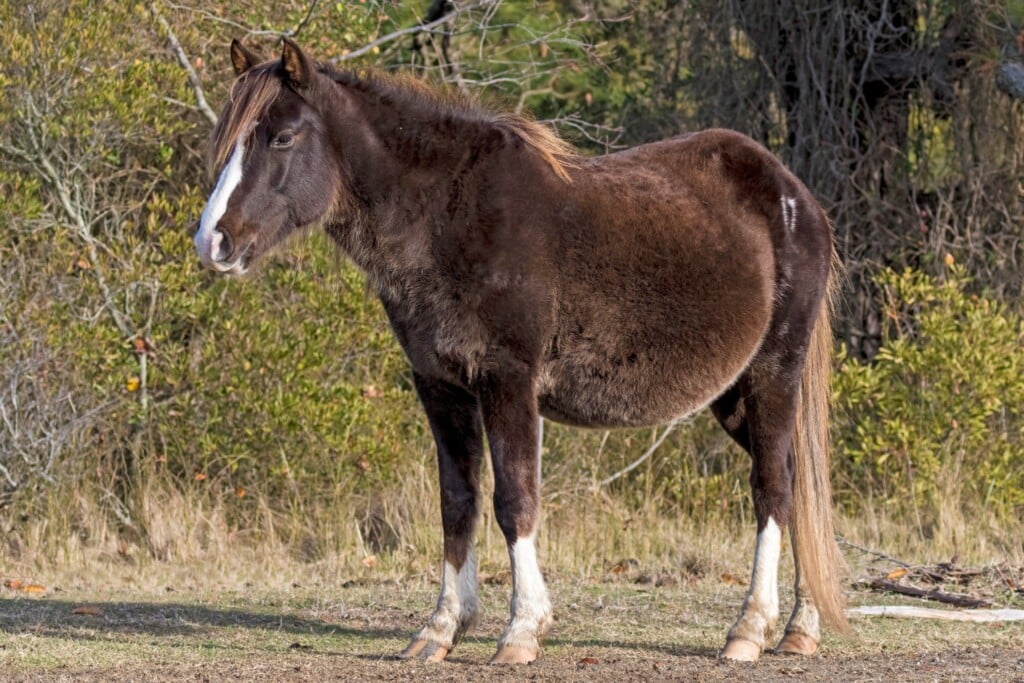103-year-old WWII veteran recounts, reflects on 80th anniversary of atomic bombs
DOVER, Del. – The week of August 4th, 2025, marks 80 years since the historic and devastating atomic bombs dropped on Hiroshima and Nagasaki, Japan. Many who lived through that history are no longer around to tell their story, except for 103-year-old Marvin Skeath of Dover.
The Battle of Okinawa
The images are still clear in Skeath’s mind: It’s April 1st, 1945, and the then-23-year-old United States Marine 2nd Lieutenant is preparing to fight in the Battle of Okinawa.
“The water was just covered with ships; battleships, cruisers, destroyers,” Skeath remembered.
Over 82 days, at least 12,000 Americans, an estimated 150,000 Okinawans, and 110,000 Japanese would die in the fight. But the sixth night of the 4th Marines 6th Division’s offensive was one that Skeath says he will never forget.
“Some Japanese attacked our command post that night. They had come up through the rice fields … I lost five men from my platoon,” Skeath said.
Skeath said he was lying close enough to one man during the melee that he could feel the bullets striking the body next to him. But those terrifying moments are far from the only ones that Skeath endured in the Pacific Theatre.
One day, Skeath said he and some men from his platoon were traveling by Jeep to pick up some boots.
“(We heard) kind of a metallic, crunching noise … ‘What did we hit?’ We backed up, and there was a 500-pound bomb that the Japanese had left as a booby trap,” Skeath said.
Incredibly, that bomb never blew.
“It was all over.”
The platoon would later ship to Guam, as they prepared for what the Marines believed would be their invasion of Japan. But news on August 6th changed those plans to occupation, and shifted world history forever.
At 8:15 a.m. on August 6th, 1945, the Enola Gay took off from Tinian Island, carrying the world’s first atomic bomb. It exploded over the industrial city of Hiroshima, setting a new course for world conflict. Three days later, the only other atomic weapon then in existence fell on Nagasaki.
“A nation that only a few years earlier had embarked on a war to expand its empire had reaped a bitter reward. Hiroshima and Nagasaki lay in ashes,” droned the solemn report from a 1945 news reel.
When Skeath and the other men heard about the historic strikes, he says they—and the world—didn’t fully understand what an atomic bomb was.
“It was the start of a new weapon of war that I hope is never used … If another atomic bomb is dropped by somebody, it’s going to mean the end of the earth as we know it,” Skeath reflected.
It was in late August that Skeath and his platoon would land on the beach near Yokosuka Air Base in a Higgins boat.
“We hit the beach, but the ramp wouldn’t go down. So, we had to crawl over the sides. And at this point, we weren’t quite sure what the Japanese were going to do,” Skeath said.
Emerging from the waves, the men would find a group of Japanese officers and their surrendered weapons. 80 years later, Skeath still has the sword that he plucked from that pile, and remembers that striking scene.
“It was obvious that they had obeyed their emperor’s wishes, and it was all over,” Skeath said.
Returning Home, Reflecting Back
After months of occupation, Skeath would send a telegram to his beloved wife, Anne, back home in Media, Pennsylvania. It was November, and Skeath wrote, “Should be home by first week of December … Love and kisses – Skeets.”
Despite the loved ones waiting for his return, Skeath says it wasn’t an easy homecoming.
“I was a changed person,” he said.
Skeath would continue to serve in the United States Marines until 1966. Later, Skeath would serve as an ambassador for the United States in NATO. He said it’s hard to sum up everything he’s seen and learned, many of them hard lessons.
“What do you tell people? Wars aren’t the way to settle things. And unfortunately, that’s the way it works out a lot of times,” Skeath said.
Today, Skeath lives in Dover with his loved ones. Even through the horrors he lived through and the sacrifices made, Skeath retains a sharp sense of humor. The secret to living to 103 years old?
“Clean living and good scotch,” Skeath laughed.


